Iranian Prisoner On Death Row Dies Of Heart Attack
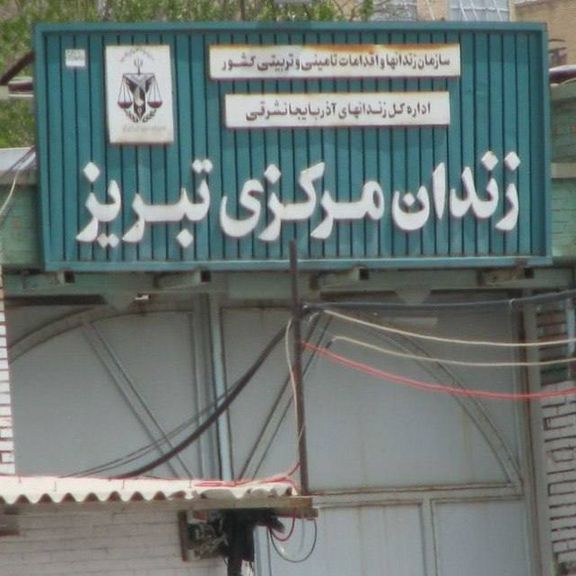
An Iranian prisoner on death row has died of cardiac arrest caused by the stress of imminent execution, a rights group reported.

An Iranian prisoner on death row has died of cardiac arrest caused by the stress of imminent execution, a rights group reported.
Milad Bahmanzadeh, who had been convicted of murder and sentenced to death, died of a heart attack in Tabriz prison northwest of Iran because of the huge stress and anxiety of his possible execution, Hengaw Organization reported.
Bahmanzadeh lost his life on Sunday, hours after he was transferred to the special ward where prisoners on death row are held.
Over the past few weeks, the Islamic Republic has hanged dozens of prisoners, including protesters, as part of an execution spree widely condemned by the international community.
The number of executions in Iran started to rise after President Ebrahim Raisi – the former head of the country’s notorious judiciary -- took office in August 2021 but the recent exponential spike has triggered concern at home and abroad.
The United Nations said earlier this month that Iran has executed 209 people so far this year, calling the record "abominable". The number has further grown in recent days, particularly with the regime's execution of three political prisoners Majid Kazemi, Saleh Mirhashemi and Saeed Yaghoubi.
Last week Amnesty International condemned the execution spree, and said it "opposes the death penalty in all cases without exception, regardless of the nature or circumstances of the crime; guilt, innocence or other characteristics of the individual; or the method used by the state to carry out the execution."
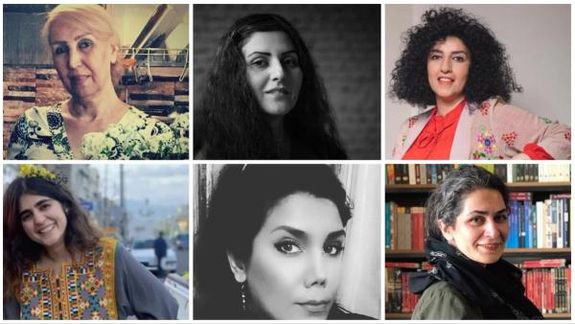
A group of female political prisoners in Tehran’s Evin Prison staged a sit-in to protest recent executions, saying the regime wants to frighten people into submission.
“The regime is taking revenge for the revolutionary movement by executing and killing people,” human rights activist Narges Mohammadi told inmates who gathered Saturday evening at the courtyard of the women’s ward to protest the execution of three political prisoners in Esfahan Friday.
Mohammadi argued that unlike the 1980s when the regime executed thousands of political prisoners to establish and stabilize its tyranny, the recent executions will only strengthen the people’s determination to overthrow the Islamic Republic.
Majid Kazemi, Saeed Yaghoubi and Saleh Mirhashemi were handed down the death sentence in a trial condemned as a travesty of justice by human rights campaigners, who say the prisoners were tortured into confessions, and there is no reliable evidence against them.
The three men were convicted over the death of two IRGC’s Basij militia members and a police officer during protests last November in Esfahan. Leaked audio from police radio chatter from the night the three regime agents were killed indicates that they were shot by friendly fire of plainclothes forces. The accused even had alibis for the time the agents were killed, with the family of one of the victims claiming there was CCTV video footage of their son at work.
Friday's executions brought to at least seven the number of protesters hanged since the beginning of the nationwide protests last September, which turned into one of the boldest challenges to the clerical rulers since the 1979 revolution. The protests were ignited by Mahsa Amini's death in the custody of Iran's morality police.
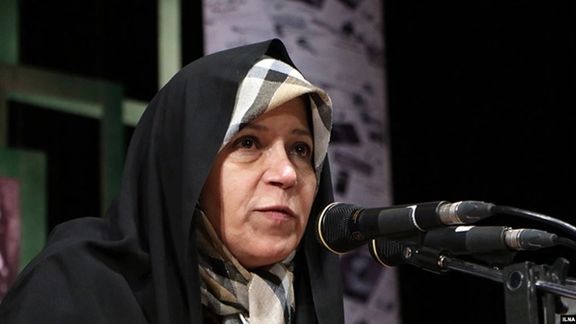
“Execution and taking people’s lives has turned into a despicable everyday practice in the Islamic Republic,” Faezeh Hashemi, the daughter of former President Akbar Hashemi-Rafsanjani said at the same gathering. “Execution of three protesters in Esfahan [last week], two in Tehran [in December], executions of 209 in five months, 580 in one year, 14 executions in one day, 22 executions in two weeks…,” she went on to say.
Hashemi accused the regime of using executions to “shut the mouths of critics and dissidents and to escape accountability over the appalling situation in the country” and it also signals the regime’s fear of the people.
She denounced executions “under any pretext, including for impertinence against the prophet, insult against sanctities, taking up arms against the regime, blasphemy, corruption on earth and even for drug trafficking” because, she said, “justice has been taken to the slaughterhouse”.
Hashemi, a former lawmaker who launched Zan daily for women during the presidency of reformist President Mohammad Khatami in late 1990s, is an outspoken critic of Supreme Leader Ali Khamenei.
Activists and politicians at home and abroad, as well as family members of protesters killed by the regime have extensively condemned the recent executions. Several neighborhoods in the capital Tehran, Esfahan and in a few other cities were scenes of protests against the regime’s executions last week. Students at universities across Iran also staged demonstrations.
Over 170 activists and politicians in Iran in a joint statement released Sunday dubbed the executions a “systematic murder by the government and demanded the immediate annulment of all death sentences.
A group of political prisoners including reformist politician Mostafa Tajzadeh, also an outspoken critic of Khamenei, said in a separate statement that the regime is using executions “as a tool of suppression and to cover up political, economic and social challenges and crises.”
Friday’s executions also sparked outrage among Western governments and people around the world.

Israel accused Iran's Revolutionary Guard (IRGC) on Monday of turning commercial ships into platforms for launching missiles, drones and commandos.
Defense Minister Yoav Gallant added the objective was to spread Tehran's clandestine naval clout well beyond the Persian Gulf.
The allegation came as tensions between the regional foes surge afresh over Iran's nuclear drive of uranium enrichment and support for Palestinian and Lebanese militias.
Showing images of six purportedly repurposed Iranian vessels, five of them named, Gallant told the Herzliya Conference security forum that these were "floating terror bases" and that one had recently sailed toward the Gulf of Aden.
"This follows directly on the maritime terrorism Iran has been imposing on the Persian Gulf and Arabian Sea. It is working to expand its activity to the Indian Ocean, too, and later to the Red Sea and to the Mediterranean Sea as well," Gallant said.
Iran has seized dozens of commercial vessels since 2019 in around the Persian Gulf waters, often with the aim of gaining leverage against other countries, such as South Korea and Greece.
Gallant said, “The [Iranian plan] is a concerning, 'pirate policy'. Iran is conducting itself like a collection of criminal organizations and not a modern state. The floating terror bases are an extension of Iran’s ongoing maritime terrorism, as seen in its actions in the Persian Gulf and Arabian Sea."
"Iran aims to expand its reach to the Indian Ocean, the Red Sea and even the shores of the Mediterranean. This is a structured plan designed to threaten trade and flight routes – both military and civilian – and to create a permanent threat in the maritime arena,” he added.
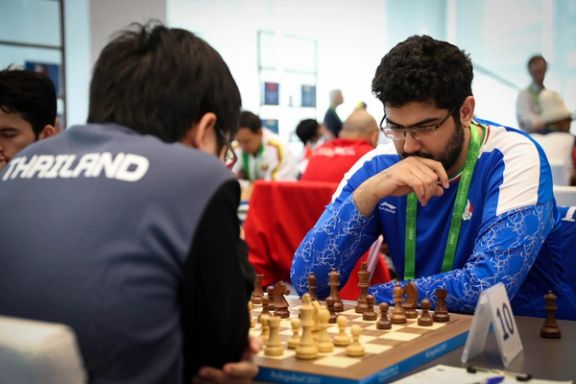
Pouya Idani, Iran's chess grandmaster, emigrated to France due to some "problems" including "difficulty in accessing the main chess websites," because of Iran's Internet restrictions.
Iran’s local media announced on Monday that the chess player “does not intend to change his citizenship and has only gone to France to live there.”
Iran Varzeshi daily claimed that Idani is going to play for the Iranian national team in the upcoming Asian Games.
"The playing conditions are more suitable for me in France and I am closer to the tournaments and leagues there," the daily quoted Idani as saying.
"I had problems in Iran, and it was difficult for me to continue competing. It was difficult for us to access some main chess sites. Even other players such as Mohammad Amin Tabatabai and Parham Maqsoudlou face the same conditions. I hope this situation will improve."
As nationwide anti-regime protests began in September, the government started to disrupt access to the internet to prevent news about the unrest being disseminated both inside the country and abroad.
Idani was awarded the title of Grandmaster by FIDE in 2014. He won the World U18 chess Championship in 2013. He is the second-best chess player in Iran as of June 2021.
Over 30 Iranian athletes have defected in recent years, seeking asylum in other countries.
In addition to dress code restrictions, another issue forcing Iranian athletes to defect is Tehran’s policy of not allowing them to compete against Israelis.
Many Iranian athletes have also displayed solidarity with the 2022 protest movement at international games despite threats of punishment.
Authorities have made serious threats against athletes and other celebrities to stop them from public displays of solidarity with protesters with little effect.
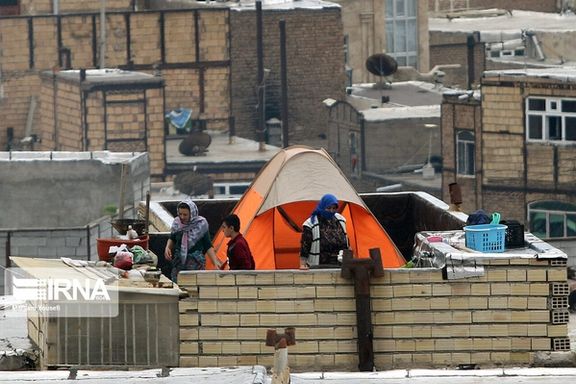
A prominent economist in Iran says high rents in Tehran push many tenants to the less expensive margins of the capital where a new social sub-class is taking shape.
In an interview with Didban Iran website, Hossein Raghfar, said as the number of those living in the margins of Iran's major cities is on the rise, there is an increased possibility of new protest movements that will take the officials by surprise.
Raghfar said, "this might happen any moment. The people are badly vulnerable and price rises have brought them to the verge of a revolt. In the meantime, officials appear to be oblivious to the looming threat."
The economist warned: "Unpredictable unrest is likely to take place. What you saw in last year's protests was only the tip of the iceberg."
The website quoted the Central Bank of Iran as reporting that rents in the Iranian capital rose by 46 percent during the first half of last year. This comes while the government had allowed landlords to increase the rents by just 25 percent. As a result, wrote the website, many have decided to live outside Tehran, and some have chosen to live in makeshift houses built on some of Tehran's rooftops.
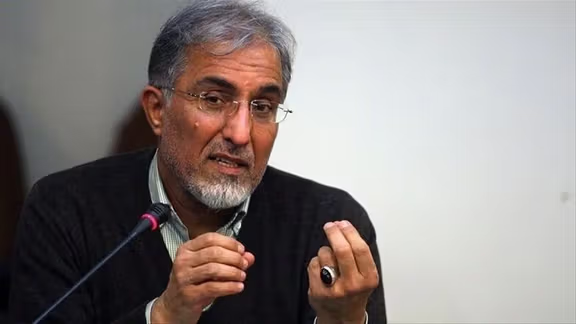
Iran has been gripped by very high inflation since 2018 when the United States withdrew from the JCPOA nuclear deal and imposed tough economic sanctions. A recent report indicated that the inflation rate is close to 70 percent.
The website wrote that more than 24 million Iranians are feeling the crunch this year as rents are going to go up once again with the beginning of the summer. Raghfar said skyrocketing rents is one of the results of rising house prices that have also led to rising prices for other goods and services. For instance, nearly 50 percent of the price of clothing people buy is used to cover the clothing shops' rents. He added that the rising cost of housing has even led some young Iranians to leave the country for good.
He also mentioned the social problems that occur as a result of rising housing cost: "Some sleep in the buses and some families share a house with another family." This, he said, marks the failure of government policies during the past three decades.
The Secretary of Trade Union of Real Estate Agents Saeed Lotfi told reporters that in parts of the Iranian capital, rents are paid in US dollars rather than the extremely devalued national currency rial. He also confirmed that some of the tenants are being pushed out of the capital and that some others share a house with another family although he said the union is against the idea of house sharing.
"Until a few years ago, there were lots of houses available for rent in southwest Tehran, but nowadays it is really difficult to find a vacant house for families who need it as many of those who were not able to afford high rents in the affluent parts of Tehran have moved to the southwest suburbs," Lotfi said.
He added that many others have chosen to move to much smaller homes as prices and rents rise. Lotfi pointed out that current prices will certainly rise further as “we have not yet reached the peak of housing market which is around September when schools re-open” for the new academic year.
Earlier reports in mid-2022 indicated that there was a more than 300 percent rise in rents in Tehran in a matter of three years. And figures released in December 2021, some six months after Ebrahim Raisi took office as President indicated that food and housing expenses in Iran had risen between 300 to 740 percent during the preceding six years while wages went up by around only 270 percent during the same period.
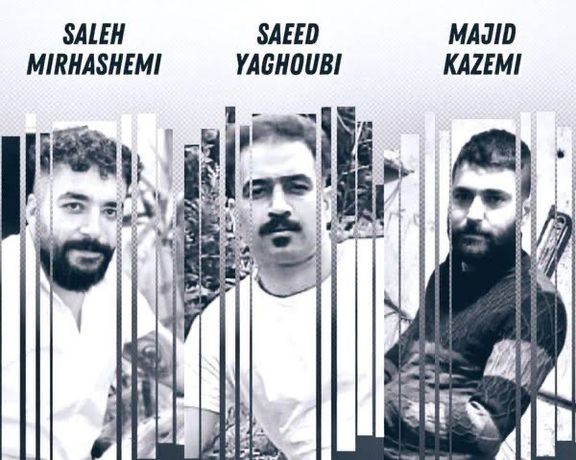
Dozens of political and civil activists, as well as a number of trade unions, protested the execution of three protesters in Esfahan (Isfahan).
In a statement issued online on Monday, they said “These executions will not affect our determination to end the oppression, inequality and gender apartheid against the oppressive regime that tortures, intimidates, and hangs.
“We have heard the message of our loved ones who sought help from prison and said: ‘Don't let them kill us’ and we loudly tell the regime: ‘We will not let you kill our youth anymore'."
Parents of victims killed by the Islamic Republic have also signed the letter along with major industries including Kermanshah Electric and Metal Society, Avant-Guard Students, Alborz Painters Syndicate, Kermanshah Electrical and Metal Workers Syndicate, Iran Retirees Council and the Oil Contract Workers.
The clerical rulers killed three demonstrators Majid Kazemi, Saeed Yaghoubi and Saleh Mirhashemi on Friday. Protests outside the jail where they were held and outraged calls by the international community failed to halt the Islamic Republic's execution machine. The deaths brought to at least seven the number of protesters hanged since nationwide protests broke out in September 2022 following the death in custody of 22-year-old Mahsa Amini.
The three were convicted over the death of two IRGC’s Basij militia members and a police officer during protests in November last year, in what Persian media have dubbed the ‘Esfahan (Isfahan) House’ case, named after the area, where they were arrested. Human rights campaigners say they were tortured into confessions, and there was no reliable evidence against them.